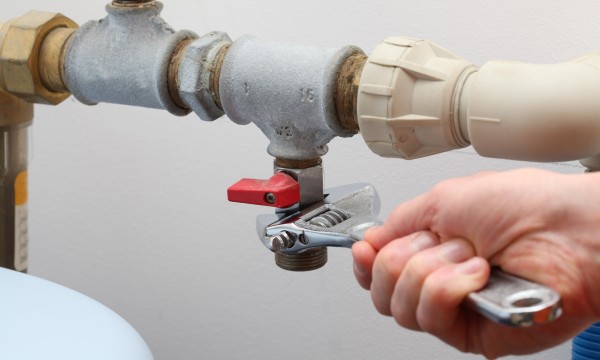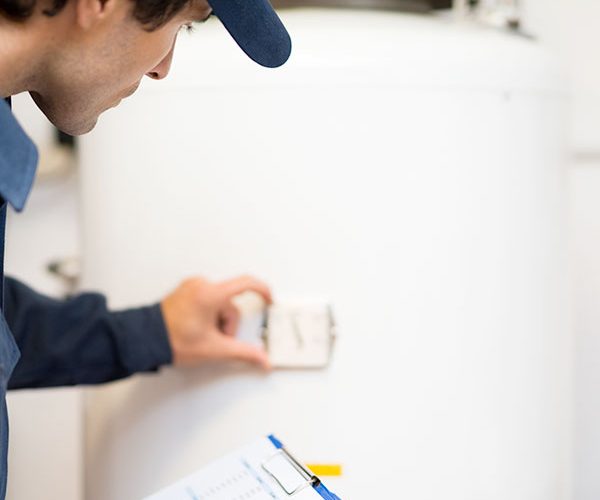Are you searching for tips on Warning Signs You Need Water Heater Repairs?

A hot water heater is among the most vital standard appliances that can be found in a home. With water heaters, you don't require to experience the stress of heating water by hand every single time there is a demand to wash, do the laundry, or the dishes. However, there is constantly an opportunity that your water heater would break down just like most mechanical devices.
It is necessary to note any kind of little malfunction and also tackle it rapidly prior to things leave hand. The majority of times, your water heater begins to malfunction when there is an accumulation of sediments as a result of constant use. As a precaution, routine flushing of your water heater is recommended to avoid sediment accumulation and stop functional failure.
Usual hot water heater emergency situations as well as how to manage them
Dripping hot water heater tank.
A leaky tank could be a sign of corrosion. It could cause damage to the flooring, wall surface as well as electric gadgets around it. You could even go to danger of having your apartment or condo flooded. In this situation, you should switch off your hot water heater, enable it to cool down, and also very carefully search for the resource of the issue. At times, all you require to do is to tighten a couple of screws or pipe links in cases of minor leakages. If this doesn't function as well as the leakage persists, you may require to employ the solutions of a specialist for a suitable substitute.
Fluctuating water temperature.
Your water heater might start creating water of various temperatures typically ice cool or hot hot. There might be a need to replace either the heating or the thermostat system of your water heating system.
Inadequate hot water
Taking care of a not enough supply of warm water can be irritating. It may be that the water heater can't sustain the warm water demand for your house. To handle this problem, you can try to adjust your heater's temperature level dial as well as wait for a couple of minutes. You can ask for the help of a specialist plumber if the issue persists. Conversely, you might upgrade your hot water heater to one with a bigger capacity.
Blemished or stinky water
When this occurs, you need to recognize if the concern is from the water or the tank resource. If there is no funny smell when you run cold water, after that you are certain that it is your water heater that is damaged. The smelly water can be brought on by corrosion or the buildup of microorganisms or debris in the hot water heater container. Once you notice this, you can attempt flushing out your container or changing the anode if the issue continues. The feature of the anode is to clean out microorganisms from your storage tank. Because the anode rod substitute needs a comprehensive understanding of your water heating unit, you will certainly need the aid of an expert.
Verdict
Some homeowners disregard little warning as well as minor faults in their hot water heater unit. This only causes more damages and also a feasible total malfunction of your device. You need to deal with your hot water heater mistakes as soon as they come up to stay clear of even more costs as well as unneeded emergency difficulties.
With water heaters, you do not need to go via the tension of home heating water manually every time there is a demand to take a bathroom, do the laundry, or the meals. Your water heating system could begin creating water of different temperature levels normally ice cold or scalding hot. It may be that the water heating unit can't support the hot water demand for your home. If there is no funny odor when you run cold water, then you are specific that it is your water heating unit that is faulty. The odiferous water can be created by rust or the build-up of microorganisms or sediments in the water heater storage tank.
What’s Wrong With My Water Heater?
Not Enough Hot Water
You probably encounter this problem in the shower or while washing dishes. As you run your water, you’ll notice it starting to cool down. Turning up the hot faucet may not work, or it may only heat the water for a short period. Your hot water probably comes back and works normally one or two hours after you use it up.
If you’ve never had enough hot water, your heater may be too small for your home. If you haven’t had a problem until recently, there’s probably something’s wrong with your heater’s thermostat. Try adjusting it to see if you can feel a difference. Even if the thermostat’s working, the heating element itself could have burnt out. It’s also possible that a clog has restricted water flow into or out of the heater. Luckily, none of these problems are hard to fix, as long as you call them in early.
Water is Too Hot
Unregulated water heaters can make water dangerously hot. You probably have this problem if you’ve been scalded by your hot water. It’s also a likely culprit if you have trouble getting your faucets to produce a comfortable temperature. This problem is easy to fix, but it can also be a serious health hazard if you don’t address it. If you think your water is too hot, don’t doubt yourself; look into it!
Start by finding your heater’s thermostat and mark its position with a pen. Turn the thermostat to a cooler setting. Wait a couple hours to see if the problem is solved. If it isn’t, listen for boiling in the tank and look for water that comes out of the faucet steaming. In those cases, your temperature-pressure relief valve may be malfunctioning. This is a serious problem that can be dangerous, so you should have it looked at right away.
Discolored or Smelly Water
If all your water looks rusty or smells weird, there’s probably a problem with your pipes. If only your hot water looks weird, however, your water heater is probably at fault. Hot water discoloration comes in several varieties. It could look orange or brown-ish, taste rusty, or feel grainy. It could also look yellow or green-ish and taste gross or feel slimy. Either way, it’s a sign that there’s something wrong with your water heater’s tank.
Usually, hot water discoloration means sediment has built up in your tank. Sediment is made up of hardened minerals that accumulate on the inside of the water heater’s walls. When enough sediment builds up, it causes all kinds of problems–including your discolored water. Try flushing your water heater tank to clean out built up sediment. If the water still tastes rusty, your tank’s rust-preventing anode rod may have worn out. A pro can replace an anode rod easily, but without one, your tank could rust beyond repair relatively quickly.
Leaking
Water heaters can leak from several different places, and each leak means something different. If the leak is coming from a pipe above the heater, it’s possible the tank itself hasn’t been compromised. The cold inlet, hot outlet, and T&P pipes could all leak from above. Try tightening the problematic valve. If that doesn’t work, then the valve or pipe will have to be replaced.
If the leak is coming from the bottom of the tank, it’s important to determine exactly where it is. The leak could be coming out of the drain valve or your T&P valve below the tank. You can replace those valves and preserve the tank itself. If you notice the water tank itself leaking, however, that probably means it’s corroded beyond the point-of-no-return. Leaking water heaters are a big deal, so you should get yours replaced ASAP.
https://www.punctualplumberdallas.com/blog/whats-wrong-water-heater/

I came across that post on Is Your Water Heater Leaking? when doing a search on the web. Sharing is caring. You just don't know, you may be helping someone out. I praise you for your time. Don't hesitate to stop by our site back soon.
Plumbing integrity assured.